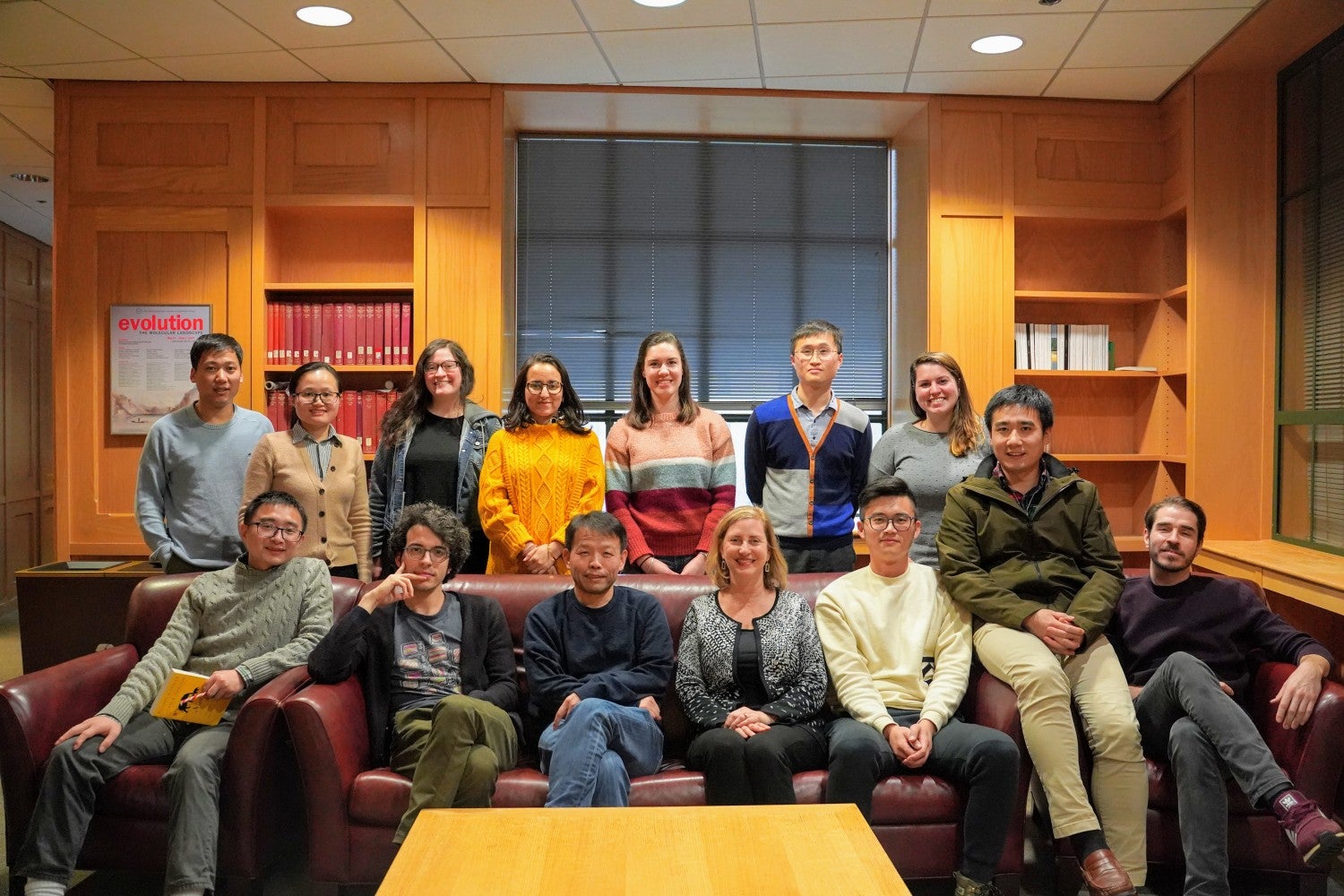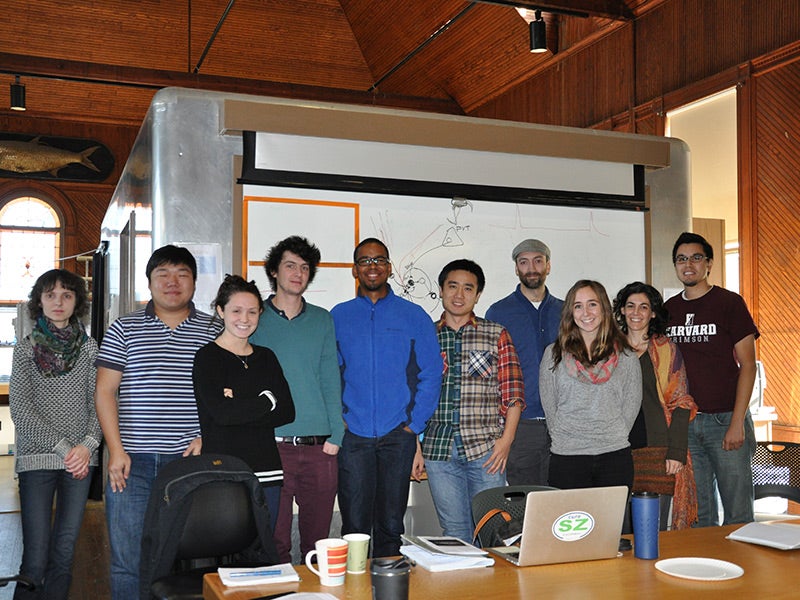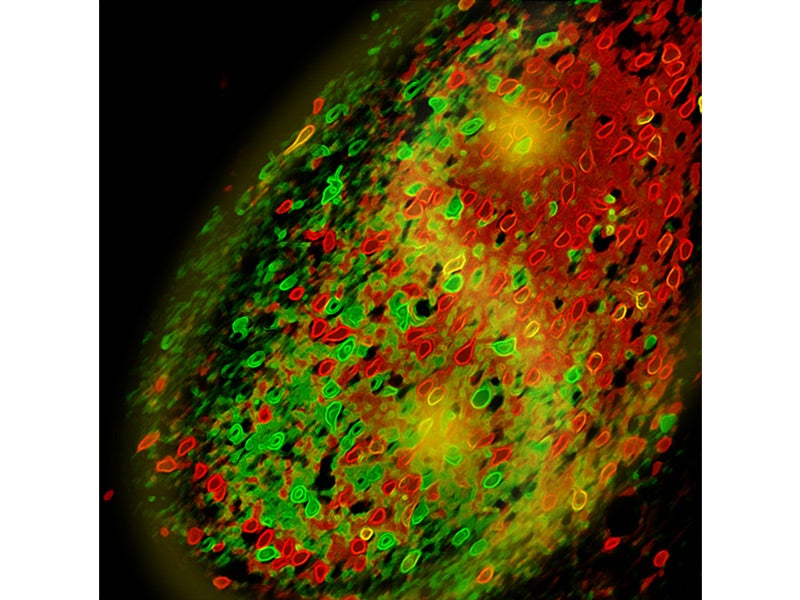Welcome to the Bo Li Lab
About the lab
We study the synaptic and circuit mechanisms underlying behavior. We use in vitro and in vivo electrophysiological, imaging, optogenetic, and chemogenetic techniques combined with mouse genetic and molecular methods to probe and manipulate specific neural circuits, and to determine the role of these circuits in adaptive behaviors or maladaptive behaviors related to mental disorders.
News
Brain scans show how different factors can influence obesity in men and women
Understanding the differences, researchers say, could have implications for more targeted approaches to weight loss..
Click Here to read the article
Thursday, April 6, 2023
Welcome to the lab Charlotte and Wenqiang:
Would like to warmly welcome our newest additions Charlotte Lee to the lab as the senior research associate and Wending Zheng as our newest postdoc.
Monday, January 30, 2023
Got junk food on the brain? These cells may be to blame
CSHL Professor Bo Li has discovered a group of neurons, shown here in green, in the brain’s amygdala that drive mice to eat even when they’re not hungry. The neurons activate in response to fatty and sugary foods and trigger a behavior called hedonic eating—when mice eat for pleasure instead of survival.
Click Here to read the article
Thursday, October 20, 2022
Welcome to the lab Mingzhe:
Mingzhe received his Ph.D. from the Institute of Neuroscience, Chinese Academy of Science, China. He joined Li Lab in October 2022. His work focuses on the role of the body-brain axis in interoceptive processing. Outside the lab, Mingzhe is interested in fitness and basketball.
Monday, October 3, 2022
CONGRATULATIONS TO SARA BOYLE:
Sara Boyle just won the favorite talk from the June 2022 Graduate Student Symposium! Congratulations!
Wednesday, June 15, 2022
WELCOME TO THE LI LAB:
The Li Lab would like to welcome our new Student in Residence Hao Zhang and our summer intern Yaman Thapa to Cold Spring Harbor Laboratory!
Wednesday, June 19, 2022
OPENINGS IN THE LI LAB:
The Li Lab is looking for an experienced lab technician. We also have open positions for graduate students and postdoctoral fellows. Please contact Bo Li directly – bli@cshl.edu
Wednesday, January 19, 2022
Aleksander Kaplan joined our lab as a postdoctoral fellow. Welcome Alex!!
Tuesday, January 18, 2022
A genetically defined insula-brainstem circuit selectively controls motivational vigor
Thursday, December 9, 2021
Danielle van de Lisdonk joined the lab for her PhD Study. Welcome Danielle!
Monday, November 15, 2021
NIH BRAIN Initiative invests $9.7 million in CSHL scientists
Tuesday, Dec 29, 2020
The National Institute of Health (NIH) Brain Research through Advancing Innovative Neurotechnologies® (BRAIN) Initiative awarded a total of $9.7 million in new grants to Cold Spring Harbor Laboratory (CSHL) professors, a senior fellow, and a visiting scientist. Started in 2013, the BRAIN Initiative funds innovative neuroscience projects. The goal is to better treat, prevent, and cure neurological disorders.
So much data, too little time CSHL Professor Partha Mitra and his team are developing new artificial intelligence tools to analyze a broad range of brain datasets and types. These new computational resources will help neuroscientists analyze an overwhelming amount of brain imaging and physiological data that already exist, plus the even larger datasets being generated in labs around the world Read More
How does the brain process fear?
Tuesday, November 3, 2020
When a frightful creature startles you, your brain may activate its fear-processing circuitry, sending your heart racing to help you escape the threat. It’s also the job of the brain’s fear-processing circuits to help you learn from experience to recognize which situations are truly dangerous and to respond appropriately—so if the scare comes from a costumed goblin, you’ll probably recover quickly.
In more dire circumstances, however, the brain’s fear response can be critical for survival. “Being able to fear is the ability to sense the danger and is the driving force to figure out a way to escape or fight back,” said Cold Spring Harbor Laboratory Professor Bo Li. Read More
How the brain balances pleasure and pain
Tuesday, Dec 31, 2019
As our brains take in information about the world and use it to steer our actions, two key principles guide our choices: seek pleasure and avoid pain. Researchers at Cold Spring Harbor Laboratory (CSHL) have zeroed in on an information-processing hub in the brains of mice to discover how neurons there divide the labor to handle these opposing behavioral motivations. Their work, reported December 31, 2019 in the journal Neuron, reveals that different classes of neurons control positive and negative motivation, sending opposing signals along a shared motivation-processing brain circuit. Ultimately, the balance of activity between these two groups of cells may determine whether a person acts to seek out pleasurable experiences or avoid negative ones, says CSHL Professor Bo Li, who led the study. Read More
Interview with a neuroscientist
Friday, May 31, 2019
Comprised of a M.C. Escher-esque network of pathways, the brain is a maze of chaotic proportions. In its full-functioning glory, the brain helps us move, think, dream, and create. It’s a beautiful marvel of evolution that coordinates and translates messages from cells into emotions, memories, and actions. Read More
How the Brain Hears and Fears
Wednesday, Dec 5 2018
How is it that a sound can send a chill down your spine? By observing individual brain cells of mice, scientists at Cold Spring Harbor Laboratory (CSHL) are understanding how a sound can incite fear.
Investigator Bo Li focuses on a part of the mouse brain called the amygdala where sights, sounds, and other stimuli take on positive or negative associations through experience. The continuous process of learning and unlearning that occurs in the amygdala appears impaired in people with anxiety disorders or major depression. Understanding brain cell, or neuron activity in the amygdala could result in better treatments. Read More










